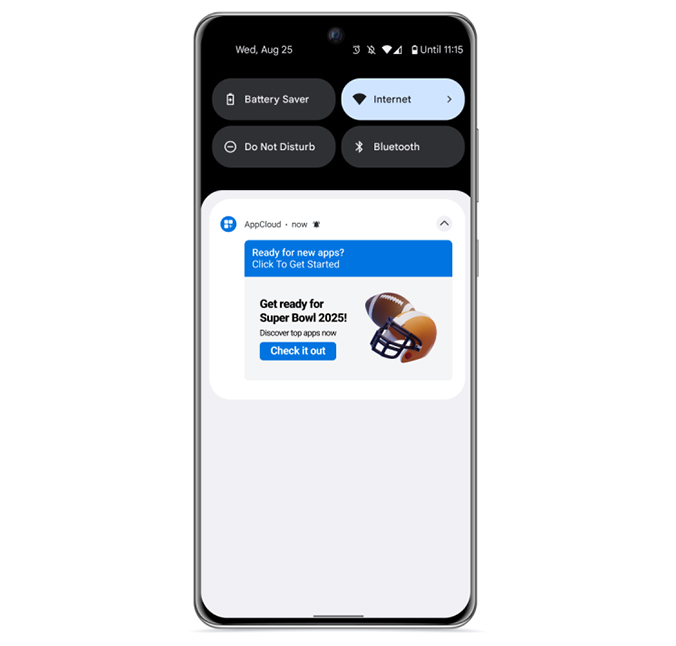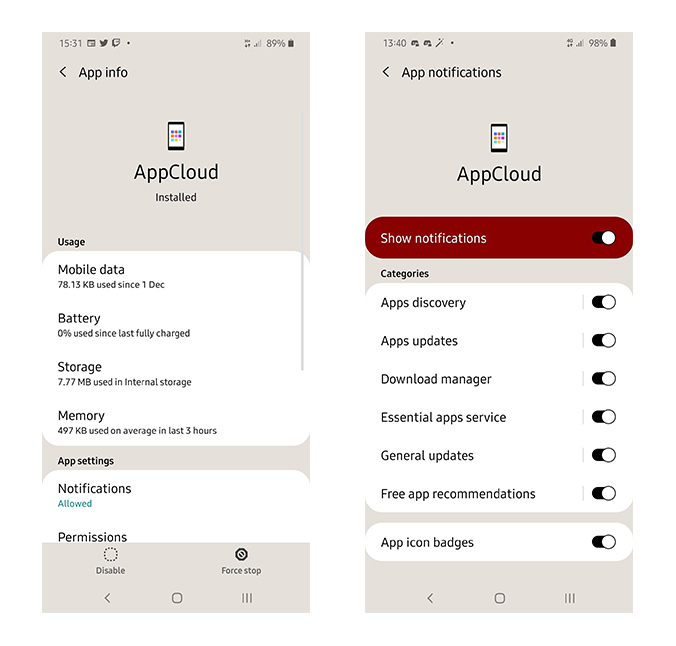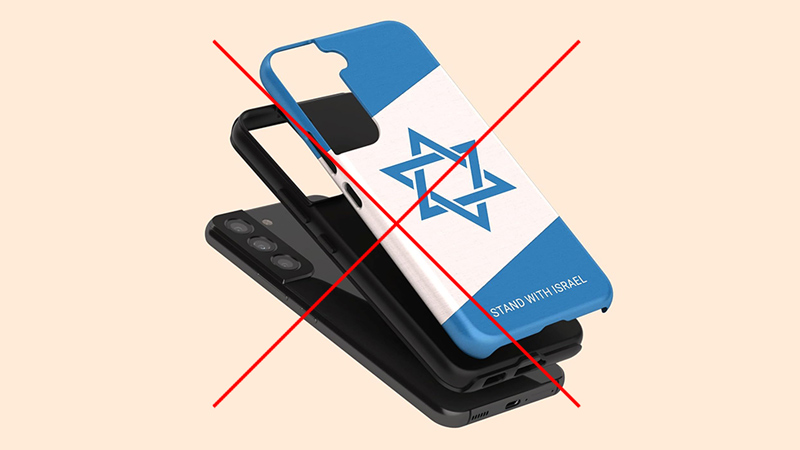Samsung is under growing scrutiny after reports emerged that many of its Galaxy A, M, and F series phones come with a deeply embedded pre-installed app called AppCloud, which users say cannot be removed.
Once dismissed as ordinary bloatware, the software is now at the center of a larger debate about privacy, control, and the quiet ways technology can overstep. Digital rights organization SMEX argues that AppCloud collects sensitive user information and is built into the system so deeply that true removal is nearly impossible without rooting the device.
What makes it disturbing at first sight, is the fact that the app was developed by ironSource, a company now owned by Unity, but an Israeli.
That detail has intensified concerns in regions like West Asia and North Africa, where the political and surveillance implications are impossible to ignore. SMEX’s open letter to Samsung highlights that AppCloud is “deeply integrated into the devices’ operating system,” reappearing after updates and resisting user attempts to disable it.
The app’s privacy disclosures are difficult to locate, leaving people unsure about what data is being harvested or how it is being processed.

While users can disable AppCloud on their phone by going to the Settings app, select Apps, tap AppCloud, and hit the Disable button, reports say that even after doing so, the app can reenable itself again. On some devices, the app may get reenabled after a software update. Advanced users have found that removing it requires ADB commands or root access, both of which void warranties and expose the device to additional risks.
Security researchers warn that the issue isn’t just inconvenience. It is the architecture of the app: system-level access, and persistent behavior.
Making things worse, some suggest that AppCloud has the ability to download and manage other software.
These traits place AppCloud in dangerous proximity to something users have every right to fear.
Users across Reddit and social platforms share the same frustrations.

In the tech sphere, Israel, among other things, is known for Pegasus, the infamous spyware crafted by NSO Group.
It infiltrated devices by burrowing into the system where permissions barely mattered. Once embedded deeply enough, Pegasus could read messages, monitor calls, track movements and capture data without alerting the user. Its existence changed how the world understood mobile security.
This fact has taught a lot of people that system-level software is power, and when that power is misused, people lose more than privacy. They lose safety.
But AppCloud is not Pegasus.
Still, it sits in the same unsettling category: a non-removable, silently privileged piece of code that users never asked for and cannot fully control, and that it has ties with Israel.
With ironSource’s history of controversial installers and opaque data behaviors, the burden is on Samsung to be transparent. SMEX and other advocates are calling for three simple demands:
- Allow users to remove AppCloud entirely.
- Disclose clearly what data the app collects.
- Reassess the use of third-party system apps that hold this level of privilege.
Read: Israel Spyware Capable Of Mining Data From Almost Any Devices And Apps, Report Found

Samsung says that it protects user privacy and complies with local regulations. Yet it has not offered a way to permanently remove AppCloud, nor has it clarified the app’s data practices. And when millions of consumers rely on their phones for banking, identity verification, communication, location history and intimate personal records, anything with deep access becomes more than a feature.
It becomes a trust decision, one imposed on users without their consent.
Before Samsung can come up with a proper and formal explanation, AppCloud remains more than a nuisance.
It is a reminder of how easily modern devices can shift from tools of convenience into instruments of quiet, persistent oversight.
Further reading: People Who Aren't Criminals Have 'Nothing To Be Afraid Of' When Being Surveilled
